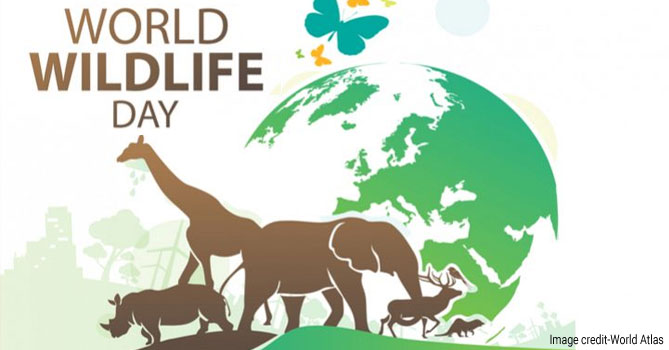India is one country known for its diverse ecosystem comprising an unmatched range of flora and fauna and landscape but perhaps the most important jigsaw of this puzzle is the animal kingdom of this South Asian country. It is perhaps the only country in the world that can boast of having both tigers and lions out in the wild, albeit in different parts of the country. However, in recent years incessant hunting and poaching of animals for their skin and other body parts has meant that the numbers of several species in India, especially the tiger, are dwindling.
Very recently the West African Black Rhinoceros was declared extinct and one of the major reasons it was hunted to oblivion was its horn, which is well known for its medicinal qualities and is especially in demand in China. This means that perhaps the other species of rhinos such as the one-horned rhinoceroses, which are found in abundance in Assam, may face the same situation a few years down the line. The question is, how can these nefarious activities be stopped and how can the Indian, as well as the global, ecosystem be preserved?
The Indian government has already taken a positive step by launching a project to save tigers of India. It would also be looking to further strengthen the security systems in place across forests, wildlife parks and sanctuaries in India so as to minimize these criminal acts as much as is possible. There have also been some who have suggested that these criminals, when they are caught red-handed, be given exemplary punishment so as to deter others from even thinking of the same. At the present moment the penalty for such crime is monetary combined with a jail term, which actually does not solve the problem much.
However, one feels that it is essential to understand the root cause behind why people are risking their lives to kill animals and then procure the body parts needed. Why do people do this even when they know that they could be penalized severely by the law if they are caught? Upon close examination, one would see that people entrusted with the responsibility of executing these activities are mostly from the economically backward sections of the society, who are either without any jobs or do not earn enough money to live the standard of life that they wish to. As it is, they do not have much going for them and are willing to take chances time and again just so that they can lead a standard of life that has proved elusive so far. In such circumstances it is very easy for people who deal in animal products to lure these people with more money than what they can imagine.
Perhaps one way to stop these activities is to identify the problematic areas and then try and understand the basic reason behind why these things are happening. Perhaps giving them jobs, which help them sustain their lives, would be a good idea to stop poaching. It is also important, then, to make these people understand the implications of their activities – of the loss they may be causing to the environment around them and the country, by extension. Once their basic needs are properly taken care of they would perhaps be in a better position to understand the education imparted to them, pertaining to these issues, and perhaps then there would be a reduction in the spate of poaching, which is threatening to make sure that very soon that only the poultry animals are left in the world and there is nothing called wildlife outside the zoos or books.
As always, it is easier to stop a problem for the time being by eliminating the criminal. However, instead of short-term punitive measures, it is perhaps better to look for long term solutions that can prove to be effective for greater periods of time. The criminal mindset, and not the criminals, needs to be rooted out because once people do not feel like committing a crime then the administration will need to worry about a problem less and devote a greater amount of energy towards development.




